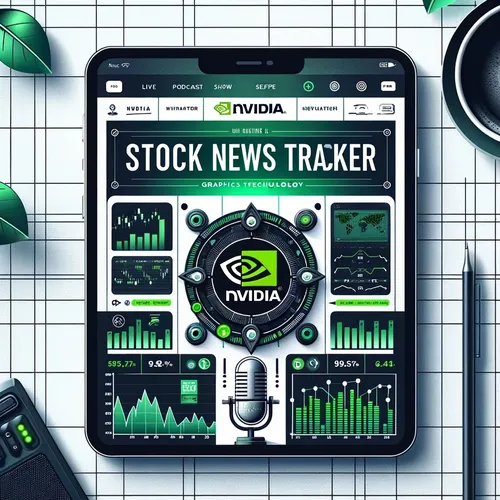"Nvidia Stock Dips Amid Tech Sector Fluctuations: Insights into Market Trends"
- Author
- Quiet. Please
- Published
- Fri 07 Jun 2024
- Episode Link
- https://www.spreaker.com/episode/nvidia-stock-dips-amid-tech-sector-fluctuations-insights-into-market-trends--60309062
In recent trading sessions, shares of Nvidia, a leading technology company known for its powerful graphics processing units (GPUs), experienced a downward shift. Amid broader market fluctuations where the Dow Jones Industrial Average saw a slight increase of 0.2%, and while the Standard & Poor's 500 faced a minor drop of 0.1%, Nvidia's stock notably fell. This decline comes in a context where the Nasdaq Composite, a benchmark that is heavily weighted towards tech stocks like Nvidia, also saw a reduction by 0.2%.
Nvidia, headquartered in Santa Clara, California, has been at the forefront of several key tech sectors, including gaming, automotive electronics, and more critically, artificial intelligence and data center operations. The company's GPUs are crucial not only in running complex video games but also in managing extensive data processing tasks required in modern computing environments.
The dip in Nvidia's stock is significant considering the company's strong market position and its pivotal role in driving the adoption of AI technologies across various industries. However, stock movements can be attributed to various factors, including general market sentiments, shifts in investor expectations, and recent company-specific developments.
Investors might also be reacting to recent news or earnings forecasts from Nvidia, adjusting their holdings based on their projections of the company's future performance. Given Nvidia's influence in the tech sector, changes in its stock price can provide insights into broader market trends, particularly in the rapidly evolving technology landscape.
As the market continues to respond to global economic cues and industry-specific developments, Nvidia remains a key player to watch, both for its financial performance and its strategic direction in a technology-driven future. The company's ability to innovate and lead in high-demand areas such.
In conclusion, while Nvidia’s stocks have dipped slightly in recent trading, the long-term perspective of the company's growth and innovation capabilities still plays a vital role in shaping investor's confidence and market dynamics.
